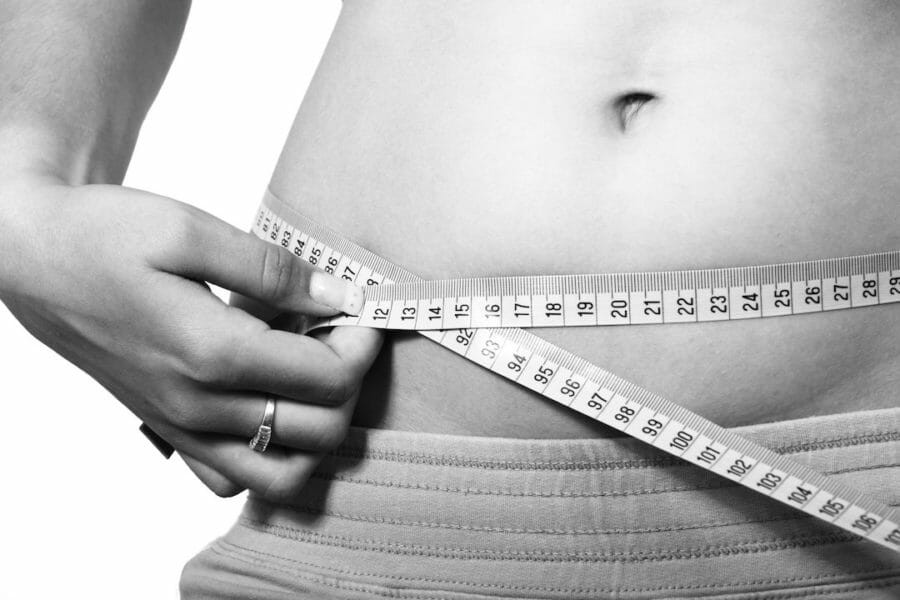
No matter whether you?re a fitness junky or someone who hasn?t spent much time in the gym at all, women from all walks of life can benefit from supplementing with BCAAs. They?re perhaps most famous for their association with the muscle building process, but BCAAs actually perform a number of other important functions.
From improving your ability to lose weight to managing your mental health, the benefits of BCAAs for women extend far beyond just building muscle. Before we dive too deep into the benefits though, let?s first discuss what BCAAs actually are.
What are BCAAs and Why Supplement With Them?
BCAAs are a type of amino acid. Amino acids play a key role in the biosynthesis of proteins in the human body. Protein biosynthesis is the process through which your body?s cells manufacture new proteins in order to replace the ones that have been degraded.
Proteins play an important role in most of your body?s major systems including both your immune and nervous systems. They?re also the foundation on which your muscles are built.
Amino acids come in two basic forms: essential and non-essential. Non-essential amino acids can be completely synthesized within the human body, while essential amino acids cannot and therefore, must be obtained from dietary sources.
There are 9 essential amino acids, of which 3 are considered to be branched-chain amino acids (BCAAs): leucine, valine, and isoleucine.
Together, these 3 BCAAs play an important role in a process known as muscle protein synthesis, which is how your body repairs and replaces damaged muscle tissue. They?re also involved in your body?s cell signaling process as well as your metabolism.
The issue is that many women don?t get an adequate supply of BCAAs through their diet alone, which can lead to deficiencies. If your body doesn?t have enough BCAAs to work with, it can lead to muscle loss, as well as, affect your brain function and immune system. All of which can leave you feeling and looking less than your best.
What?s the Recommended BCAA Dosage For Women?
RDA for Adult Women: 9g of BCAAs per day
RDA for Athletes: 10?20 grams of BCAAs per day
Is There an Ideal Ratio For BCAA Supplements?
2:1:1 is the golden ration for BCAA. That means you?re taking twice as much leucine as valine and isoleucine in each dose. So for example, if you?re taking a dose of 6 grams of BCAAs, you?d want 3g of those BCAAs to come from leucine, 1.5 from valine, and 1.5 from isoleucine.
While that might seem like more math than you?d prefer, no need to worry. Most reputable BCAA supplements already come in a 2:1:1 ratio, so all you?ll need to do is figure out your daily dosage.
The Benefits of BCAAs for Women
There are a number of benefits to be had from supplementing with BCAAs. So many in fact, that we?re not going to be covering every single one of them in this article. Instead, we?re going to focus on some of the main reasons women from all walks of life can benefit from taking BCAAs.
Promote Weight Loss
One of the most common reasons women use BCAA supplements is for weight loss. Of course, when most people talk about losing weight, what they really mean is that they want to lose excess body fat, not muscle mass. Several studies have illustrated that when combined with regular exercise and a healthy diet, BCAA supplementation leads to greater losses in body fat in healthy adults.

BCAAs help to increase fat oxidation in your body, which is a process through which your body burns up fat to meet its energy needs. (1) In combination with a protein-rich diet, BCAAs help to encourage your body to breakdown fat rather than lean muscle mass when you?re consuming fewer calories than your body needs.
Boost Metabolism
In combination with resistance training, BCAAs can also help to boost your metabolism. For many women, having a low metabolism can make losing weight a serious struggle but building lean muscle mass can actually improve your fat loss potential.
Your metabolism is closely correlated with your proportion of lean body mass to fat. The higher your proportion of lean mass is to body fat is, the higher your metabolism will be. That?s because your body requires more calories to maintaining muscle mass compared to fat, which ultimately means the more muscle mass you have, the more calories you?ll be able to eat while still losing weight.
Appetite Management
When it comes to losing weight, being able to manage your appetite is crucial and BCAAs can help. In particular, leucine appears to have a direct role in suppressing your cravings.
Leucine activates an enzyme known as mTOR, which helps to regulate cell growth and also plays an important role in your body?s synthesis of protein. (2) Increased levels of mTOR help to signal to your brain that your body?s nutritional needs have been met, which in turn, helps to keep your appetite in check.
Support Muscle Growth

BCAAs can also help to support healthy muscle growth. Your body uses BCAAs along with other proteins to repair and rebuild damaged muscle tissue, which is a process known as muscle protein synthesis (MPS). (3)
Over time, increased levels of MPS lead to increases in the size and strength of your muscles. While some studies have shown that whey protein is more effective at stimulating MPS than BCAAs, there is plenty of research demonstrating BCAAs can still be effective.
Prevent Muscle Protein Breakdown
In addition to helping to rebuild your muscle tissue, BCAAs also help to prevent muscle protein breakdown. The proteins that make up your muscles are going through a constant flux of being broken down and rebuilt.
A calorie-restricted diet, as well as, exercise can break down your muscle proteins which can lead to muscle loss without the proper nutrients. However, research shows that supplementing with BCAAs helps to attenuate muscle loss, especially when you?re eating a calorie-restricted diet.(4)(5) In combination with resistance training, BCAA can also help attenuate muscle loss in aging women.
Support Healthy Hormonal Balance
Your hormonal levels have a significant impact on your ability to gain and lose weight. If they?re out of whack, you may be at an increased risk of gaining fat and losing muscle. While it?s often exclusively associated with men, testosterone actually plays a number of vital roles in women?s bodies?.
It?s one of the primary agents responsible for the repair of body tissues, including muscle tissue. Without enough of it, you run the risk of losing muscle mass. Losing muscle mass, in turn, decreases your metabolism, which ups the risk of gaining excess body fat.
Cortisol is another hormone that can affect your health. High levels of cortisol can impact your mental health, increasing your level of stress and anxiety. They can also spike your blood sugar.
Numerous factors such as exercise and aging can affect your hormonal balance. As you get older, your testosterone levels decrease, leaving you more susceptible to muscle loss. Intense exercise can also deplete your testosterone, making it more difficult to recover after your workout.
Luckily, research shows that supplementing with BCAAs helps to increase testosterone and lower cortisol levels in healthy adults. (6)
Support a Healthy Pregnancy
BCAAs also play an important role during pregnancy. Not only are they needed by the mother to support a number of her own bodily functions, but the fetus also requires a continuous supply of essential amino acids, which must be obtained through the mother?s diet and delivered via the placenta. (7)
In order to grow and develop normally, the fetus must have a steady supply of nutrients. Because proteins are the foundation on which the body?s tissues and organs are built, amino acids, therefore, play a key role in your baby?s healthy development in utero.
When Should You Take BCAA Supplements?

There are a number of different times you can take BCAAs so the best time really depends on your goals.
Taking BCAAs first thing in the morning can help you to manage your appetite, which may come in handy for those looking to lose weight, especially via intermittent fasting.
Supplementing with BCAAs before you workout can help to mitigate muscle protein breakdown while you?re exercising.
Taking them after your workout can help to promote muscle protein synthesis. Supplementing with BCAAs before bed can also help to boost your levels of MPS and support recovery.
Wrap Up
Women of all ages need a healthy supply of essential amino acids in their diets. Unfortunately, however, many don?t get an adequate supply of BCAAs through their diet alone, which can have a number of detrimental health effects, such as muscle loss, fat gain, fatigue, and anxiety.
Supplementing with BCAAs however, can have numerous health benefits for women. From supporting a healthy hormonal balance to aiding in your ability to manage your appetite, BCAAs can help you to look and feel better in a number of different ways.
For average adult women, the RDA for BCAAs is 9 grams. For athletes, it?s 10?20 grams per day. Most research suggests that a 2:1:1 ratio is ideal. That means 2g of leucine for every 1g of valine and isoleucine.
References
- ?Novel metabolic and physiological functions of branched chain amino acids: a review?Zhang, S., Zeng, X., Ren, M., Mao, X., Qiao, S. Journal of Animal Science and Biotechnology. Jan. 2017.
- ?Effect of central and peripheral leucine on energy metabolism in the Djungarian hamster (Phodopus sungorus)?Koch, C.E., Gddeke, S., Krger, M., Tups, A. Journal of Comparative Psychology B. Jul. 2012.
- ?Branched-chain amino acids activate key enzymes in protein synthesis after physical exercise?Blomstrand E, Eliasson J, Karlsson H.K., Khnke R. The Journal of Nutrition. Jan. 2006.
- ?Branched-Chain Amino Acid Ingestion Stimulates Muscle Myofibrillar Protein Synthesis following Resistance Exercise in Humans?Jackman, S.R., Witard, O.C., Philp, A., Wallis, G.A., Baar,K., Tipton, K.D. Frontiers in Psychology. Jun. 2017.
- ?Branched-chain amino acids and muscle protein synthesis in humans: myth or reality??Lai L., Lu Y., Kong Z., Ma X., Bai, H., Zhang, X., Xu H., Gao S. Yi, N. Journal of Beijing University of Physical Education. Mar. 1994.
- ?The Effects of Oral BCAA on Players of Force Antagonistic Events?Lai L., Lu Y., Kong Z., Ma X., Bai, H., Zhang, X., Xu H., Gao S. Yi, N. Journal of Beijing University of Physical Education. Mar. 1994.
- ?Nutrition During Pregnancy: Part I Weight Gain: Part II Nutrient Supplements.?Institute of Medicine (US). Committee on Nutritional Status During Pregnancy and Lactation. National Academies Press. 1990.


